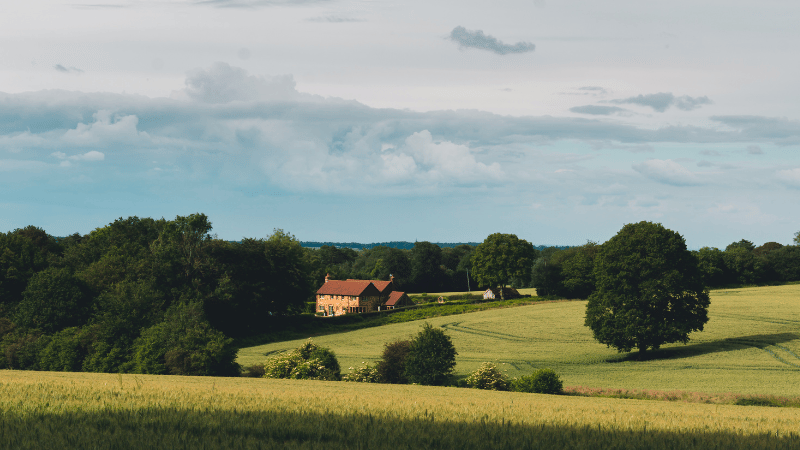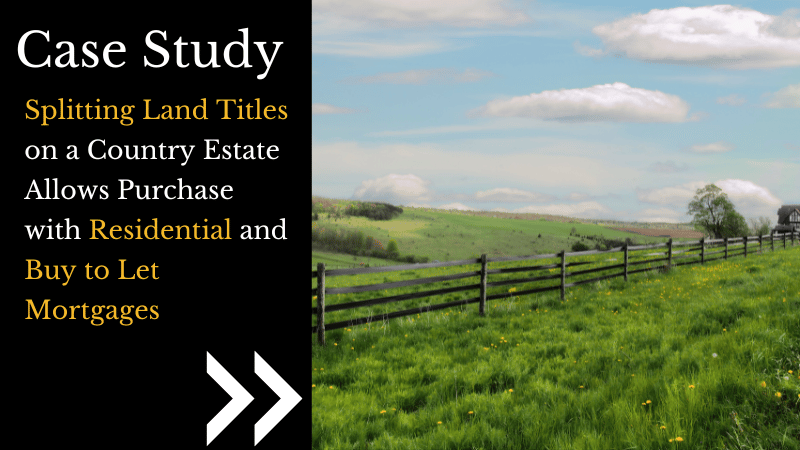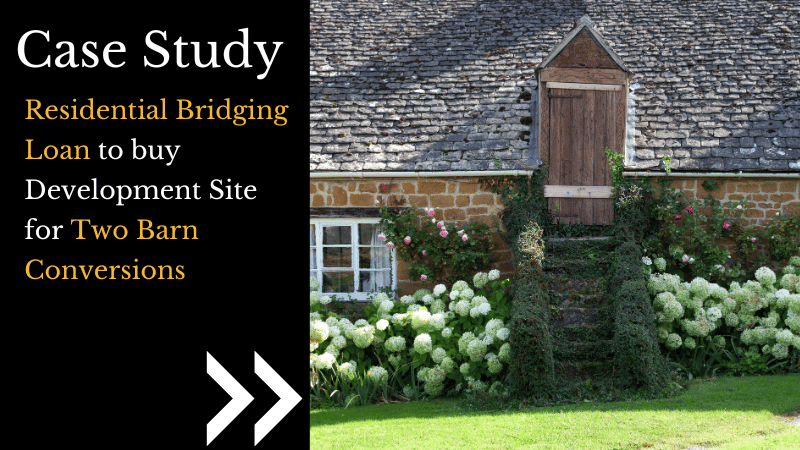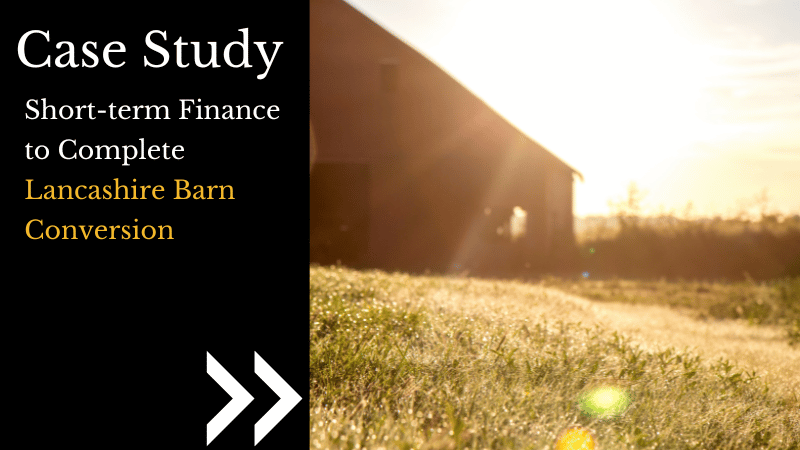Categories
How to Secure A Rural Property Mortgage

When many of us think of the word rural, we envisage sprawling countryside, tight pot-holed lanes, and stone cottages with chickens and pigs in the garden, but when it comes to property finance, rural can encompass a wider range of property types that are outside of main towns and cities.
For a lender, a rural property mortgage is all about risk assessment, resale value, and being cautious of properties that may present unusual problems.
Read on to discover the specific considerations that need to be thought about when applying for a rural property mortgage.
Key Takeaways
- Rural properties present challenges to high-street lenders, but with Clifton Private Finance, specialist options are available to you.
- Mortgage evaluations are based both on the unique nature of the property, and your personal circumstances.
- Clifton Private Finance can tailor mortgages to fund an off-grid lifestyle for modern sustainable living, purchase rural holiday homes, or buy a fantastic country property with adjoining stables.
Get a Free Quote Today:
What Makes a Property Rural?
For a lender, rural doesn’t just mean countryside; it’s about the different features that make it harder to resell when compared to a more common urban property. These include:
- Distance from urban facilities - Properties that are isolated are generally considered more difficult to market. While even in the depths of the UK countryside, you’re never really that far from a supermarket (and they’ll deliver up the most tight-winding roads!), being close to a town or city centre still makes a big difference to many potential buyers.
- Access - The ease of getting to the property is a big one. Poorly maintained roads, farm tracks, private lanes, and rights of way are all potential complications that make resale difficult.
- Utilities - Mains water, gas, and sewerage are all major considerations. Being reliant on septic tanks or heating oil deliveries not only adds difficulties to rural homes, it can also add additional expenses and maintenance issues. Internet access and mobile network coverage are also key factors for many home buyers today.
- Construction type - Lenders like to work with standard brick constructions, but many alternatives exist in rural locations, including cob builds, thatched roofs, timber frames, and barn conversions. These non-standard construction materials can all complicate mortgage underwriting.
- Land - The idea of owning vast acres of land can feel appealing, but from a lender’s perspective, anything larger than a garden (even a very big one) adds a concern that the property is not just a residential home, but steps into being commercial, which has its own set of regulations. In some cases, a mixed-use mortgage may be required.
- Planning restrictions - Planning can have a significant impact when considering rural properties. Land may be designated for forestry use, meaning it cannot be built on, or for agricultural purposes that allow for farming. Properties may also have listed status, making modernisation and maintenance more complicated. These are all factors that lenders must account for in their assessment.
Rural doesn’t have to mean difficult-to-mortgage. Some properties, such as a detached cottage in a hamlet, may be relatively straight-forward.
However, lenders will need to conduct detailed assessments to make the right evaluations, so it helps to be prepared before making your mortgage application.
The Rural Mortgage Borrower
One additional question that we as a mortgage broker will be asking when you apply for a mortgage for a rural property, will be ‘why?’.
There are many reasons for seeking a rural property, but from a lender perspective, the majority of them fall outside the normal day-to-day run of mortgages, so asking why allows us to build a picture of you as a borrower, and tailor a mortgage to suit.
Some examples of rural mortgage borrowers outside those looking for their main residential home, and the challenges that can occur include:
- People looking to renovate property - Buyers often discover there are bargains to be found in rural locations, and many will look to properties in need of renovation to maximise their investment, often buying with a plan for a full modernisation. Evaluating the property to make sure it is habitable will be a key consideration, and in some cases, regulations will prevent a standard mortgage from being possible. Bridging finance can often provide the solution, with a structured finance plan leading to a rural mortgage once the home is brought to a habitable standard.
- People looking to go ‘off grid’ - Developing an off-grid lifestyle, with a combination of sustainable living and remote work, is a dream we often see. With complex income streams adding to the challenges of the rural mortgage, specialist lending is essential. Clifton Private Finance can help you present your finances in a clear way to lenders to secure the best possible mortgage deals.
- Landlords looking to obtain holiday lets - Rural locations can offer excellent investment opportunities for landlords confident in the short-term letting market. Specialist rural buy-to-let mortgages can be obtained with a confident plan that showcases your experience and ability as a landlord.
- Equestrian properties - Buyers looking for residential property that comes with stables will need specialist mortgage advice that balances both personal and commercial use of the land.
- Farmers and agricultural workers - Some rural land can only be bought by those looking to work on it and comes with strict conditions for use. At Clifton Private Finance, we can help you obtain the right level of commercial rural mortgage that’s necessary to secure agricultural land of this type.
Specialist Rural Mortgage Lenders
Many high-street banks will reject complex rural mortgage applications, as they fall outside their underwriting criteria. In these cases, Clifton Private Finance is here to match you with a specialist lender with the experience and personalised service essential to obtain your rural mortgage.
These dedicated mortgage lenders are more open to assessing the property and its associated land with a specialised valuation, as well as understanding your personal circumstances and income situation.
Your CPF advisor will help you develop a comprehensive application that presents both the property and your position in the clearest and most effective way to secure the mortgage you’re after.
Additional considerations may include:
- Loan-to-value restrictions - While standard inner-city mortgages may be advertised as high as 95% LTV (loan-to-value), lenders may be more conservative with a complex rural mortgage assessment, resulting in lower offered LTV and a requirement for a larger deposit. 85% and 90% LTV mortgages are more common for rural properties.
- Valuation challenges - Rural properties are more likely to be unique, leading to more specialised valuation that may impact and slow your application. At Clifton Private Finance, we will work with both you and the lenders to ensure the valuation process is as smooth as possible.
- Property use - If the property is not for your main residence, your lender may expect a larger deposit and impose additional restrictions on the mortgage terms.
- Mixed-use mortgages - In some cases, the mortgage may need to be classified as mixed-use or semi-commercial. This may particularly apply to small holdings or equestrian properties.

- Mortgage rates - Alongside more stringent LTVs, lenders may offer less-competitive interest rates. The team at CPF will compare multiple lenders to obtain the best possible rate for you, working with you to manage the balance of rate vs. mortgage flexibility.
- Income proof and affordability testing - Lenders may impose stricter affordability stress tests to ensure that you can comfortably cover the mortgage costs both now and in the future. Together, we can present your salary and any additional income streams to maximise affordability and mortgage lending levels.
- Bridging finance - Where properties require renovation, faster timescales (for example, auction properties), or have other complications, a bridging loan can provide the funding needed, with a clear exit strategy based on a full rural mortgage once the property is secured and any challenges overcome. Our bridging and mortgage teams work closely together to ensure an seamless connection that give you the powerful tools of bridging finance with a well-structured and confident exit plan.
- Additional finance options - With access to the full UK marketplace of lenders, CPF can help you with a full range of finance to help develop your rural property, including self-build funding with staged payments, business loans, or asset finance for essential machinery.
Rural Property Mortgages with Clifton Private Finance
At Clifton Private Finance, we work tirelessly to match our clients with the best lenders for their needs. With a holistic view to finance, we will help you develop a comprehensive overview of both your mortgage requirements and your financial strengths and weaknesses, resulting in a thorough picture that gives lenders all the information they need to offer the very best mortgages, tailored to suit you.
We are here to work alongside throughout the process, guiding you through the mortgage options, helping you understand the realities and overcome challenges as they occur. Together we can ensure you obtain the mortgage you’re after for an exciting and vibrant country life.
Contact us today for a free rural mortgage consultation, and see how together, we can turn your rural living plans into reality.












